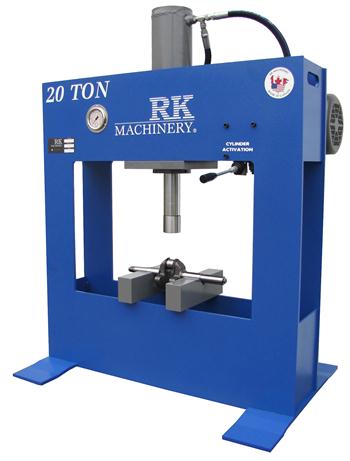Hydraulic press technology has commonly been used in the molding, stamping, bending and crushing of metal. Hydraulic presses versatility and flexibility enables for a wide range of production uses, making the shop press a must-have piece of equipment in machine shops. Powered by a hydraulic pump, a shop press allows for adjustments within each single press; which is an added advantage when choosing design options for detailing assignments.
In order to achieve quality and precision while using the hydraulic press, it is essential to consider the following tips:
Quality control measures
Quality work translates into customer satisfaction and good returns on a business investment. In order to maintain quality and minimize wastage in the use of a hydraulic press, stress tests should be performed on the materials being molded, stamped or bent so as to determine their tensile strength (TS) also known as the ultimate tensile strength (UTS). This ensures that fragile materials are handled with care and the hydraulic press settings are adjusted accordingly to accommodate load versus elongation curve.
Material properties and innate qualities
Before a molding, stamping, stretching or crushing project can commence, it is advised to explore the qualities and properties of the material being handled. This will not only dictate the force per unit to be applied on the material, but will also determine the material's breaking point. Tensile strength is an important property to explore, as well as the ability for a material to resist heat and the risks associated with welding exposure and corrosion possibilities.
Design options
The compressive strength of a material, which is the point of no return leading to deformity, differs within a wide range of materials. For instance, concrete has a higher compressive strength as compared to steel therefore the need to adjust your hydraulic press accordingly in order to achieve your design specifications. Some materials will fracture when their compressive strength is exceeded while others may become permanently deformed therefore altering their design. In order to overcome these mishaps, it calls for engineering options that support both design and the production process. The
hydraulic shop press is versatile enough to accommodate such needs.
Tools of the trade
Investing in a quality shop press is just the tip of the iceberg. Knowing how to properly operate it to meet your production needs is the key to ensuring that you get value for your money. Keep up with the latest hydraulic press technologies through continued training and research in order to benefit from the efficiency, precision and flexibility of the shop press.
Safe handling
Taking precautions within any machine operating environment will curb accidents and reduce operational costs by a large margin. Good ventilation, organized work space and excellent lighting will enhance better working conditions. Beware of any chemical hazards associated with
hydraulic fluids and lubricants.
 Français
Français
